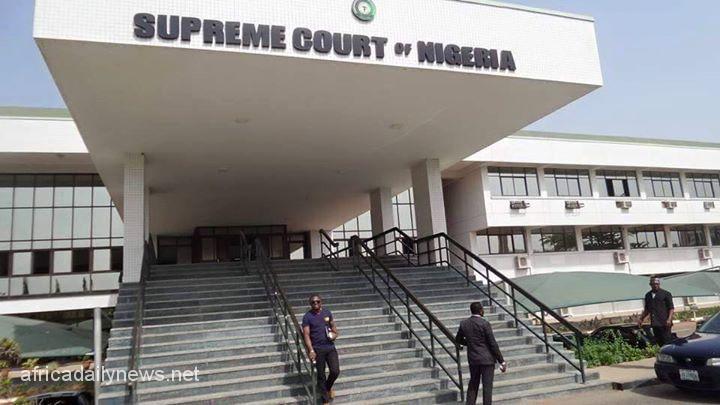In a landmark ruling, the Supreme Court of Nigeria has on Friday overruled Lagos State on its recent restriction which was slammed on the use of hijab by female Muslim students of some of the public schools in the state.
Thr ruling which took a split decision of five to two of a seven-member panel saw the Supreme Court of Nigerian acknowledging the July 21, 2016 judgment of the Court of Appeal, Lagos, which set aside the October 17, 2014 judgment which was ruled by Justice Grace Onyeabo of the High Court of Lagos State, which upheld the hijab restriction.
Read Also: Hijab Crisis: Kwara Reopens Baptist School 4 Months Later
Justice Kudirat Kekere-Ekun, who wrote the lead majority judgment, which was read on Friday by Justice Tijani Abubakar had thrown out the appeal filed by Lagos State against the 2016 judgment of the Court of Appeal, Lagos, on the grounds that the appeal was without merit.
The case had resulted as a result of the Lagos State Government’s ban on the use of the hijab, arguing that it was not part of the approved school uniform for students.
Following the ban, Muslim students filed a suit on May 27, 2015, seeking redress and asking the court to declare the ban as a violation of their rights to freedom of thought, religion and education.
The case, CA/L/135/15, is between Lagos State Government, Miss Asiyat AbdulKareem (through her father), Miss Moriam Oyeniyi and the Muslim Students’ Society of Nigeria.
Justice Modupe Onyeabor of an Ikeja High Court had on October 17, 2014, had dismissed the suit instituted against the Lagos State Government by the two 12-year-old girls (at that time), who are members of the MSSN, Lagos State Area Unit.
In her judgment, Onyeabor held that the prohibition of the wearing of hijabs over school uniforms within and outside the premises of public schools was not discriminatory.
According to her, the ban did not violate Sections 38 and 42 of the 1999 Constitution as claimed by the plaintiffs. Dissatisfied, the students urged the appellate court to set aside the judgment and protect their constitutional rights.










